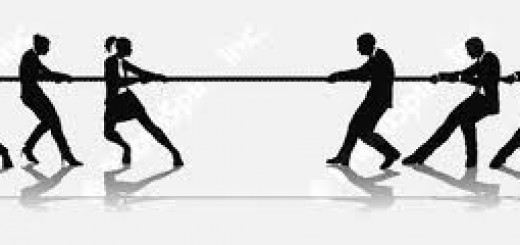To view as Pdf click here
By Rabbi Dovid Markel
Lately, social media has been abuzz with questions of gender identity and sexual reassignment due to the actions of several high profile individuals who have gone under the knife for sexual reassignment surgery.
While it is clear that the Torah unequivocally prohibits sexual reassignment surgery and that a person who performs such actions transgresses various biblical prohibitions, it is interesting that the question of gender identity and gender dysphoria is one that the kabbalists have discussed for hundreds of years.
Although the kabbalistic discussion does not change the halachic legal reality as to how a female soul in a male body—or vice versa—must act, the knowledge that the Torah does recognize such a situation does much to evoke the proper empathy to someone suffering from this condition.
We do not know the deep reasons for why G-d does anything that He does, but it is surely for the benefit of the soul, and its ultimate good that it is forced to endure such an uncomfortable reality.
Rabbi Yosef Ka-aro
Rabbi Yosef Ka-aro (1488 – 1575) was a master Talmudist and the author of the great halachic work, the Shulchan Aruch. In addition to his halachic works, he was a kabbalist who authored a mystical diary entitled Maggid Meisharim.
In the book, he writes of various encounters he had with a spiritual entity called a “magid,” who would teach him Torah, reprimand him and reveal to him various aspects of his life. On the eve of Shabbat of the sixteenth of Tevet, the Shabbat of Parshat VaYeshev, the magid came to him and revealed to him the following:
I have already revealed to you last Shabbat concerning your first two wives. Now I have come to reveal to you the secret of your third wife.
You should know that this woman was in the past, a proper Torah scholar. However, he was stingy with his money and would not give charity. He was also stingy with his wisdom and would not teach others. He was therefore punished that his soul migrated into a woman, measure for measure…[1]
Therefore, his soul was incarnated into a female, who is constantly receiving and needs someone to bequeath to her. Therefore you see, that she does abundant charity and loves you very much because you work to spread Torah and toil in writing books to teach others…because these things bring about the rectification of her soul, she therefore loves you…
It is because she has the soul of a male that you have not had children from her, because a male and another male cannot produce offspring. If you shall point out that she has children from her first husband, this is because the first husband has the spark of a female soul within him…
The magid explains at length above, that it is entirely possible for a male to have a female soul and vice versa. While the magid explains that the reason that this man was reincarnated into a female was due to his stinginess, the leading authority in Kabbalah, Rabbi Yitzchak Luria (Arizal) expresses an additional reason.
The Arizal
Rabbi Yitzchak Luria echoes the words of the magid and expresses as well, that there is the distinct possibility that an individual with a male body can have the soul of a woman:[2]
You should also know that at times, the soul of a man will be incarnated in the body of a woman due to some sin, for example, homosexuality or the like. Behold, this female which is actually the soul of a male is unable to conceive and give birth, for she does not have the aspect of “female waters” that can receive the drop of “male waters.” Such a woman needs tremendous merit to give birth…by having the soul of some woman “impregnated” in her person, so that she can conceive and give birth.
Interestingly, the Arizal explains, that it is actually the homosexuality that causes the gender dysphoria and not the other way around.
Yosef and Dina
One of the biblical expressions of the question of gender identity is expressed in the description of the birth of Dina and her half-brother Yosef (Bereishis 30:20-24):
And Leah said, “G-d has given me a good portion. This time, my husband will live with me, for I have borne him six sons;” so she named him Zevulun. And afterwards, she bore a daughter, and she named her Dina. And G-d remembered Rochel, and G-d hearkened to her, and He opened her womb. And she conceived and bore a son, and she said, “G-d has taken away my reproach.” So she named him Yosef, saying, “May the Lord grant me yet another son!”
The Talmud (Berachos 60a) explains the reason for Dina’s name, connoting judgement, in its statement:
Leah passed judgment on herself, saying, “Twelve tribes are destined to issue from Yaakov. Six have issued from me and four from the handmaids, making ten. If this child will be a male, my sister Rochel will not be equal to one of the handmaids.” Immediately the child was turned to a girl, as it says, and she called her name Dina!
Essentially, although the fetus was destined to be a male, it was miraculously transformed into a female.
The ancient commentators of the Torah (Targum Yonatan ad loc) explain, that at the time, the matriarchs, Rochel and Leah, were both pregnant. Because of Leah’s prayers, the fetuses switched wombs and the female was born to Leah and the male to Rochel.
Accordingly, various kabbalists have understood, that although the bodies were exchanged, on the soul level, each carried the soul of the opposite gender—the soul of Dina was actually male, while the soul of Yosef was female.[3]
Indeed, when examining what the Torah states regarding the characteristics of these two individuals, we find that each had traits more typical of the opposite gender.
Concerning Dina, the Medrash (Bereshit Rabbah 80:1) states, that she had an outgoing nature, which is contrary to what is expressed in Tehillim (45:14), “All the honor of the King’s daughter is within.[4]”
Her nature to go out into the world was similar to what is expressed in Talmud (Yevamos 65b) that “it is the nature of a man to conquer but it is not the nature of a woman to conquer.”
Dina, who had the character trait to go out into the world seems to have been endowed with male traits.
Yosef too, was endowed with qualities more stereotypical of a female than a male. While there are many examples of Yosef’s femininity, we will suffice with one.
On the verse (Bereishis 37:2) that describes Yosef as a lad, the Medrash (Bereishit Rabba 84:7) explains that he would “fix his hair and touch up his eyes so that he would appear handsome.”
Thus already in the Torah, we see the question of gender-identity.
While true that on a soul level one may have the soul of the opposite gender, and this may indeed affect the individual’s conscious psyche, this does not change the fact that one must halachicly act according to the gender assigned to their body.
Note: It is likely that an individual’s gender dysphoria is because of a psychological illness and is not expressive of a disassociation of body and soul—and therefore such an individual should probably seek psychological counseling to help heal. Yet, the knowledge that such a predicament is entirely possible helps to increase sensitivity for those that are suffering.
[1] Women are considered more naturally frugal than men, as the Talmud (Bava Metzia 87a ) states that “a woman looks with a more grudging eye upon guests than a man.”
[2] Sha-ar HaGilgulim Ch. 9.
[3] Pilpula Charifta, Bereishit Vol. 2 Pg. 463, Tzafnat Pa’aneach Al HaTorah, Rosen, Vol. 1 Pg. 147.
[4] See however, the Medrash there that explains that this nature came from her mother.























Good article